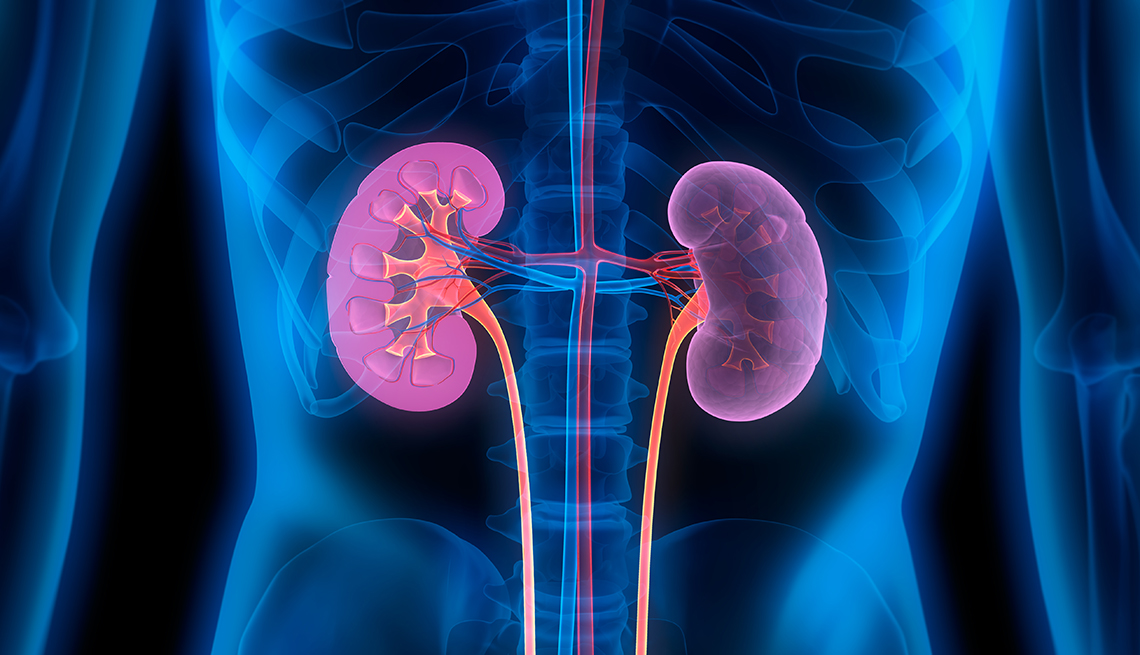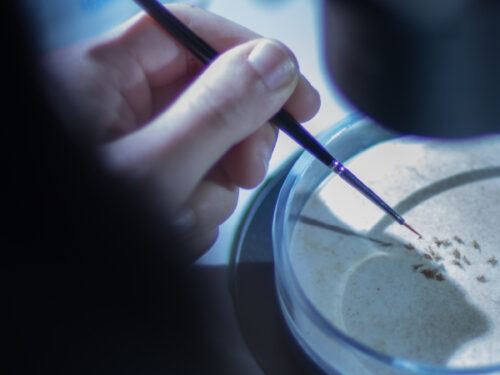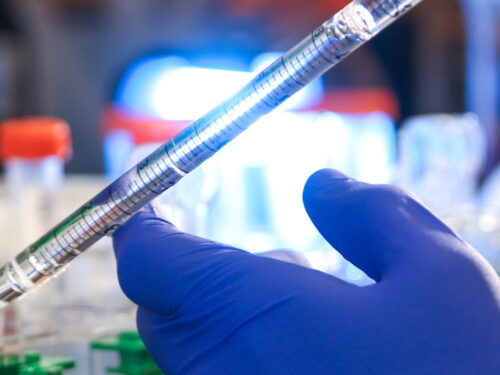

From L to R - PhD student Nathalie Bonello, Dr. Edith Said, Prof. Jean Calleja Agius, Dr Graziella Zahra
Researching the Genetics of Kidney Disease
A research project into polycystic kidney disease is making progress, as it looks to establish a link between patients’ genes and their clinical condition and family history of the disease.
Sponsored by the LifeCycle Malta Foundation through RIDT, the Genotype-Phenotype of Autosomal Dominant Polycystic Kidney disease in Malta project promises to discover the genetic aetiology and prevalence of inherited polycystic kidney disease in Malta.
Finding new ways to tackle common genetic disorders
Polycystic kidney disease (PKD) is one of the most common genetic disorders. Caused by a spontaneous gene mutation or defect, it leads to the growth of fluid-filled cysts in the kidneys. While simple kidney cysts formed later in life are usually harmless, PKD cysts can cause kidneys to enlarge or lose function over time, leading to other complications such as high blood pressure, liver cysts, or even blood vessel malfunction in the brain or heart.
Symptoms of the disease depend on age and severity but will usually develop in patients aged between 30 and 40 and become progressively worse. Autosomal dominant polycystic kidney disease (ADPKD) is PKD inherited in a dominant manner – and affects one in every 400-1000 people in the world.
Linking patients’ genotype and phenotype
The interdisciplinary research project, launched in 2021, set out to study adults with polycystic kidney disease who also have a positive family history consistent with ADPKD.
By characterising this population, and identifying its prevalence in Malta, the project hopes to contribute to the implementation of fact-based healthcare.
The project determines the patients’ individual collection of genes, known as their genotype, and correlates the genetic findings to the individual’s phenotype: onset of disease, renal function and end-stage renal disease. These results will help families to develop a better understanding of their condition and the risk of recurrence.
Through this process of genetic discovery, the project will help to define the genetic make-up of the Maltese population, which is often unique, and may lead to important scientific knowledge and global contributions to this field of research.
A customised process
Following the project’s receipt of ethical approval, a total of 65 patients who fit the criteria have thus far consented to be a part of the study. In the ongoing process, the team studies the samples from the participating patients’ genetic tests using a customised gene panel for genes known to cause ADPKD. The genetic diagnosis in the patient presenting with the disease will enable the identification of individuals in these families who are at risk of developing PKD, so that doctors can monitor and adjust their specific healthcare needs accordingly.
Through the next generation sequencing genetic analysis, the team has already found known, rare and new pathogenic mutations in several patients.
Although the patients have already received a clinical diagnosis, those who test negative in the customised gene panel then undergo a more extensive genetic investigation to identify novel genes in patients with ADPKD.
The team has selected a subgroup of patients in whom no genetic defect has been identified to study them further genetically using whole exome sequencing. This technique includes all known clinic genes and is much larger than the gene panel.
Research led by experts in their field
The University of Malta’s Anatomy and Cell Biology Department leads the project in collaboration with the Departments of Medicine and Pathology at Mater Dei Hospital. Meanwhile, the contribution of Mater Dei Hospital’s Nephrology Department has been vital in the recruitment of patients.
Led by Prof Jean Calleja Agius, the team of specialists includes Dr Edith Said, Dr Graziella Zahra and Prof Emanuel Farrugia.
The project has also offered a valuable training opportunity to PhD student Nathalie Bonello, who was awarded an Endeavour scholarship. Although one of Ms Bonello’s supervisors, Dr Zahra, heads the Molecular Diagnostics Laboratory at Mater Dei Hospital – the national COVID-19 testing laboratory – she was nevertheless able to continue her studies during the pandemic through dedication and determination.
Finding the solution in science
The project’s discovery of ground-breaking genetic data has been made possible by the support and funds of the LifeCycle Malta Foundation, the only NGO in the Maltese Islands raising money specifically to research and treat renal disease.
With further study, and the generous support of sponsors such as the LifeCycle Malta Foundation, researchers can continue to work together to shed more light on kidney disease – and follow the science to find solutions.
This project launched and continues thanks to the support and regular donations from the LifeCycle Malta Foundation through RIDT.





